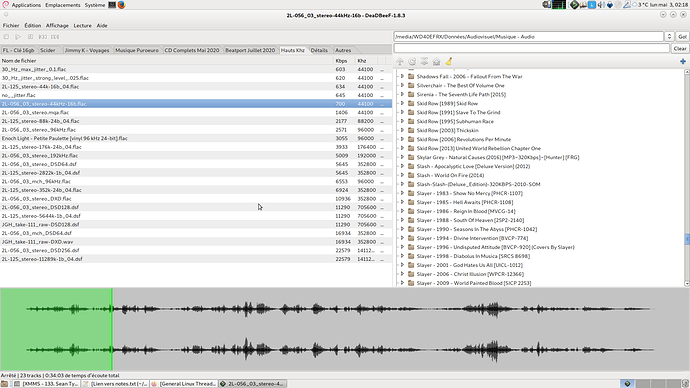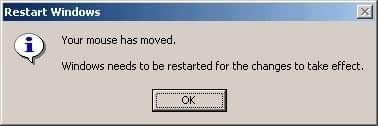Yeah, never mind, problem solved, that was my mistake… more or less (see answer in the link above). 
Hi guys, I know it was already discussed here…
But what music players do you prefer/recommend on linux?
I really liked the variability of foobar on Windows …is there anything similar?
…(installing wine version of foobar seems like a lot of unnecessary trouble)
Now: ncmpc → mpd → pulseaudio
Previously: moc → pulseaudio
But they’re both terminal music players.
Without gui?
I’m currently using Lollypop, which I like because it has an album cover view, but it’s a bit over-simplified. Interested to hear what other people like, because I’m definitely interested in switching (ideally to something else that can also list albums by their covers)
Afraid so. It’s weird, but so am I.
You can get Foobar on Linux via a snap or installing it via Wine. However I have found the audio output can suffer as it is running over Wine. If you are not trying to play DSD or high quality files then it is OK.
DeadBeef is a good player but it is just a player and does not have a library view.
I mean, that’s my Deadbeef player plus Waveform seekbar plugin.
Looks a bit like Foobar, doesn’t it?
Easy bitperfect playback by choosing:
Preferences → Alsa + output “without any software conversions”.
and Plugins → config → Alsa output: “disable alsa resampling”.
I had to install windows VM recently and I think Im gonna have nightmares about updates and restarts following me 
I don’t know what the hell are “webp” images, and why they exist, but they’re the covid-19 of the web. So I wrote this in my .bashrc file.
Then:
source ~/.bashrc
For it to take effect. Now, the “webpkill” command will change all .webp images of this selected folder in actual, readable (…watchable) .png images, then delete the .webp’s. Not recursive (could take hours otherwise…).
Warning: command with “rm” (files) in it. use with caution. will probably just delete all the webp files without doing anything else if you don’t have ffmpeg installed, for example.
Fun discussion of all things linux audio… and the current state.
So if FFADO works I could abandon Windows and run FL Studio through my old-but-trusted Firewire capture interface. Nice.
The reason why I haven’t upgraded my good old Firewire interface I bought more than 10 years ago is… heck, I can make electronic music with 30 “virtual instruments” with a 100$ laptop:
Thunderbolt audio interfaces don’t increase CPU load
Thunderbolt (and FireWire) audio interfaces definitely create the optimal condition.
Both of these protocols use what we refer to as “Direct Memory Access” (DMA) which is another way of describing a protocol that communicates directly with the CPU.
Man this CloneZilla is stupid, for how popular it is. If you make a backup of a set of partitions and then try to restore it, it doesn’t ask you what disk you want to restore to (just assumes if the originals you saved were from /sdb2 the restore should go to /sdb2 again, who cares that that might be a totally different disk at the time of the restore, and might not be the one you want), nor does it know to create the partitions itself if all you’re giving it is an unpartitioned target disk - no, you have to go in and manually create the same partitions with the same damn names as in the original, and with enough space on each one, and only then will it restore from that backup.
So stupid, holy shit.
Odd times.
well…it’s not a desktop OS…it’s enterprise level for back end functions.
Microsoft have been using Linux for a long time in their Azure instances. It’s now just centralised in GitHub.
To me, it looks like Microsoft accepted that Windows days are numbered. Would not surprise me if the next “windows” was just a compatibility layer stacked on top of the Linux Kernel (or more likely, BSD since that allows monetization).
In terms of desktop usage Windows is staying stagnant. Mac chips away a small bit of it but not much. Microsoft also has the enterprise market.
Linux has more adoption on the server side where it is cheap and easy to deploy. Of course saying cheap isn’t as easy as the initial cost but ongoing maintenance too and training.


